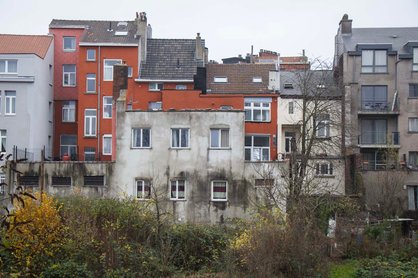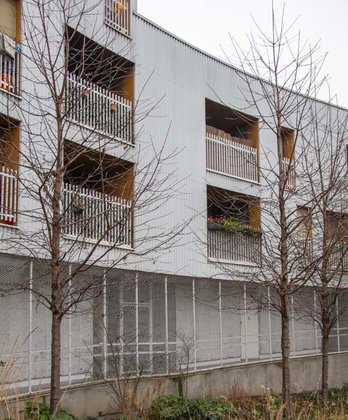
Antoine HORENBEEK
Renting an apartment in Belgium can be complicated for landlords. Did you know that the law imposes strict standards to guarantee tenants decent accommodation? This article explains these rules and your obligations as a landlord.
A rented apartment must meet strict criteria. These standards guarantee the safety and comfort of tenants.
Every rental property must comply with strict safety regulations. Installing functional smoke detectors is mandatory in Belgium. Detectors must be installed in key areas, such as corridors or near bedrooms.
This protects occupants from fire.
Electrical installations must also comply with current standards. Any short-circuit or faulty system can endanger occupants. The owner must provide a home with a safe, tested electrical system.
A home needs to be properly ventilated. This reduces humidity and ensures healthy air. Rooms such as bathrooms and kitchens require sufficient air extraction.
Poor ventilation can encourage mold growth.
The presence of mold is prohibited. It can damage health and deteriorate the property. The landlord must treat these problems before letting the property. Walls must be watertight, with no signs of infiltration or excessive humidity.
Let's move on to the habitability criteria, essential for evaluating a property.
An apartment must have a minimum floor area. In Wallonia, the standard is 18 m² for one person. In Brussels, it's also 18 m². In Flanders, the rules vary according to the type of accommodation.
These criteria ensure a decent living space.
Basic equipment is also mandatory. A functional kitchen with sink and hot water is required. Sanitary facilities must include a toilet and bathroom or shower in good condition.
These installations guarantee occupant comfort and safety.
Rental rules vary from region to region in Belgium. Each region imposes its own requirements to ensure safe and comfortable accommodation.
In Brussels, the Housing Code sets out strict rules for renting out property. Dwellings must comply with safety, health and habitability standards. A working smoke detector is mandatory.
Electrical installations must be up to standard to avoid risks.
The minimum living area is 18 m² for a single person. Good ventilation is essential to avoid damp and mold. The landlord must ensure that the property is in good condition before renting it out.

Antoine HORENBEEK
In the Flemish Region, rental properties must comply with strict criteria. An energy performance certificate (PEB) is mandatory. This document provides information on the home's insulation and energy consumption.
Windows should be double-glazed to ensure good thermal insulation.
Minimum floor area requirements are also set. Sanitation requires proper ventilation, without damp or mold. Smoke detectors are essential.
Electrical installations must comply with legal standards to ensure occupant safety.
The Walloon Code lays down strict rules for rented accommodation. Each dwelling must comply with health and safety criteria. For example, the installation of smoke detectors is mandatory.
Electrical systems must comply with current standards.
A home must also be habitable and healthy. Ventilation must be efficient, with no excessive humidity or visible mold. The minimum surface area is set at 18 m² for a studio, with basic facilities such as a kitchenette and a functional bathroom.
Housing must meet clear criteria to ensure comfort and safety. Discover the essential details.
In Belgium, the PEB certificate is mandatory for renting a property. It provides information on the energy consumption and insulation of the rented property. This document classifies the property on a scale from A (economical) to G (energy-hungry).
The landlord must present a valid certificate when the property is rented out. This enables the lessee to assess energy costs.
A poor score can encourage insulation work, such as replacing windows or insulating the roof.
Home insulation must comply with strict standards. A well-insulated roof helps reduce heat loss and keeps energy costs down. Double-glazed windows are mandatory to keep the home airtight.
These elements improve both energy performance (EPB) and occupant comfort. Landlords must also ensure that insulation is in good condition. This ensures better rental management and protects the property from damp.
A property must be well maintained to comply with rental standards. The landlord is responsible for ensuring that theelectrical, heating and plumbing systems are in good condition.
Major repairs, such as a faulty roof or boiler, are the tenant's responsibility. The tenant, on the other hand, is responsible for maintaining the property and carrying out minor repairs. This includes, for example, replacing light bulbs or cleaning ventilation filters.
Damage caused by the tenant may engage his liability. Good communication between the parties is essential to avoid conflicts.
To find out more :
Landlords: how to check the conformity of a rental investment?
Please note: certain structural defects, such as an annex built without planning permission or undeclared work, may be considered urban planning violations. In such cases, the owner must regularize the situation before or during the rental period. Failure to do so may result in administrative sanctions and compulsory reinstatement.
Rent must be set in accordance with current regulations. Indexation allows you to adjust the rent each year in line with inflation.
In Brussels-Capital, the reference rent helps to control rental prices. It depends on several criteria. The municipality, the surface area of the property and its facilities all play a key role.
Owners must respect these references to avoid abuse.
This system protects tenants from overpricing. The figures are updated regularly. You can consult this information online to find out the amount applicable in your situation.
Rent in Belgium can be adjusted annually. Indexation is based on the health index, an economic indicator. The landlord must respect the anniversary date of the rental contract to apply this increase.
This indexation is strictly regulated by law. It cannot exceed the percentage authorized by the index. An unregistered lease does not authorize this increase.
The lessor must also inform the lessee before making any changes to the rent.
A rental agreement must include certain essential information to be valid. Make sure it clearly describes the terms and conditions between the lessor and the lessee.
The lease contract must include the names and addresses of the lessor and lessee. This information clearly identifies the parties involved. Every detail must correspond to the official documents to avoid disputes.
The description of the property must be precise. Include the full address, type of property (apartment, house), living area and equipment included. Also indicate the general condition of the property, such as the state of the walls or the presence of double glazing.
The length of the lease depends on its type. A primary residence lease is often for 9 years, but shorter options exist, such as 3 years or less. For student leases, the duration generally corresponds to one academic year.
The rent must be clearly stated in the contract. It must comply with reference rents in certain regions, such as Brussels-Capital. The rental guarantee can be up to a maximum of 3 months' rent and must be deposited in a blocked account in the tenant's name.
Registering a lease is a legal obligation for landlords. This step guarantees legal certainty for both parties.
In Belgium, the lessor must register the rental contract. This obligation is legal and applies to all written leases, whether for a principal residence or other.
Registration guarantees legal certainty for both parties.
The landlord has four months after signing the lease to complete this procedure. Registration is free of charge for principal residence leases.
Failure to comply with this rule may result in sanctions, such as the impossibility of claiming certain indemnities from the tenant.

The lessor risks a fine if the lease is not registered. The fine can range from 25 to 500 euros, depending on the region. In addition, the tenant may terminate the contract without notice or compensation.
The obligation to register protects the rights of both parties. If the agreement is not registered, the tenant can refuse rent indexation. Respecting this obligation helps avoid legal disputes.
On a related subject: Landlords' obligations to tenants
Insurance protects against risks such as fire or water damage. It is essential to guarantee financial security for all parties.
Tenants must take out home insurance. This covers damage to the dwelling, such as fire or water damage. It also protects against damage to neighbors.
In the case of a shared tenancy, each tenant may be responsible for his or her own insurance, unless the lease stipulates otherwise.
In Belgium, this insurance is often mandatory, depending on the lease signed. It guarantees the protection of the rented property and complies with legal obligations. The amount varies according to the minimum requirements of the insured property.
The tenant must provide proof of insurance when the contract comes into force or when the inventory of fixtures is drawn up.
Landlords must take out fire insurance to protect their property. This coverage helps repair damage caused by fire, explosion or water damage in the rented accommodation.
It may also include civil liability coverage. This covers damage to neighbors or the building in the event of an incident. This meets a legal obligation and also protects their financial interests.

The lessor must comply with legislation on safety and comfort, register the lease and guarantee proper maintenance of the property.
The duration depends on the type of contract. A short-term lease can last up to three years, while a standard lease lasts nine years.
The rental guarantee cannot exceed three months' rent. It is a legal obligation to protect the landlord.
The owner is responsible for any work required to bring the property up to standard and for major renovations. This includes repairs needed to ensure a safe home.
Registration of the rental contract is mandatory. The lessor must submit the file to the regional housing authority within the legal deadline.
Yes, legislation prohibits discrimination based on color, origin or other criteria. All prospective tenants must have equal access to housing.
Author : CORNIL Olivier
Contact UBEX today for a free consultation!
Don't let regulatory changes take you by surprise. Anticipate and act with UBEXyour partner in real estate regulation.
Contact Ubex
AddressesUbex
Avenue Louise 523 B1050 Brussels
Chaussée de Marche 482 B5101 Namur
Rue Bois Gotha 98 B4000 Liège
Rue de Bart Haut 6 B6790 Aubange
Beekstraat 6 B9030 Gent
Copyright © SIZE+ 2026. All rights reserved.